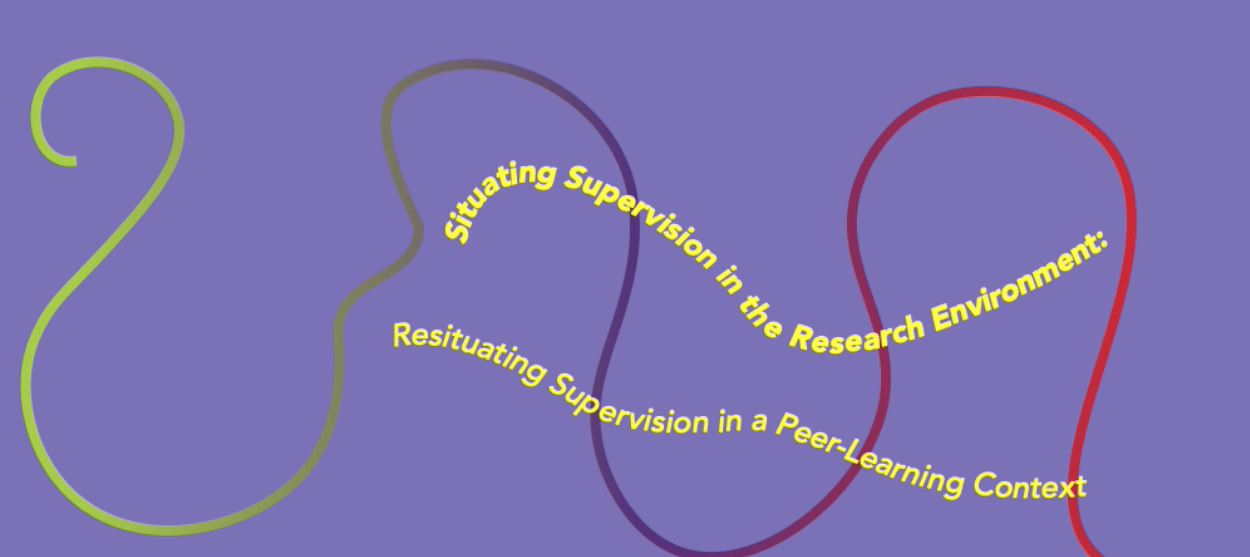Lead Partner: The Glasgow School of Art (GSA)

Prof. Henry Rogers and Dr. Inês Bento-Coelho
Keywords:
artistic research environments, peer learning, innovative triadic model for supervision, wellbeing in the doctoral process.
Glasgow School of Art’s contribution to Advancing Supervision for Artistic Research Doctorates aims to explore the value and nature of the wider research community in the doctoral experience. We focused in particular on unpacking the importance of peer learning and distributed learning scenarios in the process of ‘becoming a peer’ as doctoral researchers progress throughout the degree. We investigated ways in which peer learning and alternative approaches to learning and teaching in artistic research doctorates can be implemented as an integral part of doctoral programmes. This allowed us to re-think forms of supervision and the value of distinct supervisory approaches in various moments of the degree, and to investigate how to embed peer learning in supervisory strategies.
To explore questions around supervision, peer learning, student wellbeing and to understand how supervisory practices are currently perceived by doctoral researchers, we conducted a student survey – open to current students and recent graduates. The questions revolved around understanding the students’ experience of the supervisory process and of opportunities for peer learning throughout the degree. In parallel, in order to better examine how staff depicts and perceives their supervisory practice, we conducted one-to-one interviews with staff with supervisory responsibilities across departments at GSA. The methodology involved the analysis of first voice experiences, which were investigated in the context of extensive literature review of supervisory practices, artistic research pedagogies, peer learning, student wellbeing, and the development of research environments.
This body of research resulted in a collaborative written text that investigates the relationship – tension – between established conventions of supervision and the impact of peer learning as a productive form of engagement to enhance artistic-research communities. We explored distinct angles to understand how peer learning can be integrated to enhance student wellbeing, to foster criticality, to support students to become peers, to positively impact in the development of research communities, and to contribute to the development of inter-institutional research environments.
To make sense of all this – and to return to the practice of art, we are, at the end of the day, artists – and as a form of reflection on how these materials may be articulated, we created a non-normative video: a playful work in which staff at the School of Fine Art responded to key concepts in the text. The contributors were asked to deal with the text in diverse ways, to give voice to it, and to ultimately attend to materiality by bursting into song. This offering evokes a mishmash methodology, an inspirational mega-remix, and a return to the making of art, or so we hope!
Credits:
In addition to all project partners, we would like to thank all the staff and students at GSA who anonymously gave their time during an unprecedented global pandemic and contributed to the survey and interviews. We are also thankful to GSA’s staff and to international partners interested in doctoral study who joined the project presentations in January 2019 and 2020 at GSA’s Winter School at Altyre (Innovation School, Highland Campus). This was instrumental in establishing and enhancing the project brief, defining its key concerns, ethical parameters, and the importance of exploring innovative practice in supervision, i.e. the triadic model. We are also deeply thankful to Dr. Jakub Ceglarz for the playful design and editing of the video.
Project team of The Glasgow School of Art:
Prof. Henry Rogers, Dr. Inês Bento-Coelho, Dr. Jakub Ceglarz, Dr. Sarah Tripp, Prof. Rebecca Fortnum, Dr. Zoe Mendelson, Dr. Roddy Hunter, Dr. Gina Wall, Dr. Cara Broadley, Prof. Susannah Thompson, Prof. Lynn-Sayers McHattie, Dr. Nicky Bird, and Dr. Fiona Jardine.